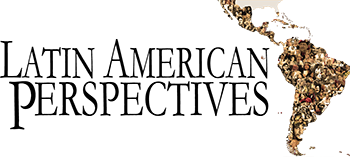:::::: Book ::::::
The Catholic Church and Power Politics in Latin America: The Dominican Case in Comparative Perspective (Critical Currents in Latin American Perspective Series)
by Emelio Betances
by Emelio Betances
Since the 1960s, the Catholic Church has acted as a mediator during social and political change in many Latin American countries, especially the Dominican Republic, Bolivia, Guatemala, Nicaragua, and El Salvador. Although the Catholic clergy was called in during political crises in all five countries, the situation in the Dominican Republic was especially notable because the Church's role as mediator was eventually institutionalized. Because the Dominican state was persistently weak, the Church was able to secure the support of the Balaguer regime (1966–1978) and ensure social and political cohesion and stability. Emelio Betances analyzes the particular circumstances that allowed the Church in the Dominican Republic to accommodate the political and social establishment; the Church offered non-partisan political mediation, rebuilt its ties with the lower echelons of society, and responded to the challenges of the evangelical movement. The author's historical examination of church-state relations in the Dominican Republic leads to important regional comparisons that broaden our understanding of the Catholic Church in the whole of Latin America.
This is an interesting and substantial study. . . . Betances' work is something one does not see much of lately—a highly detailed institutional history of the Church in one country. . . . This is a valuable addition to the literature on religion and politics in Latin America. (Latin American Studies)
In this well-written monograph, Emelio Betances examines the origins and development of this relationship in the Domincan Republic. (Hispanic American Historical Review)
History has a curious and even dangerous way of showing us things that reality forces us to see day after day. It works like one of the enlargers we used in photography long before a computer sat on top of our desks. History is also the method Emelio Betances has chosen to focus on and illuminate that odd fellowship of the Catholic Church and the state in Latin America. He couldn't have chosen a better method. (José Luis Sáez Ramo, Academia Dominicana de la Historia)
At long last we have an illuminating study of one of the more interesting national churches in Latin America. The transformation of the Church from one that was subdued under the dictator Rafael Trujillo to one that successfully fulfilled a role as moderator in society and politics, built loyalty among its members, and responded to Pentecostal challengers is described by a Dominican scholar. (Edward L. Cleary, Providence College)
In this well-written monograph, Emelio Betances examines the origins and development of this relationship in the Domincan Republic. (Hispanic American Historical Review)
History has a curious and even dangerous way of showing us things that reality forces us to see day after day. It works like one of the enlargers we used in photography long before a computer sat on top of our desks. History is also the method Emelio Betances has chosen to focus on and illuminate that odd fellowship of the Catholic Church and the state in Latin America. He couldn't have chosen a better method. (José Luis Sáez Ramo, Academia Dominicana de la Historia)
At long last we have an illuminating study of one of the more interesting national churches in Latin America. The transformation of the Church from one that was subdued under the dictator Rafael Trujillo to one that successfully fulfilled a role as moderator in society and politics, built loyalty among its members, and responded to Pentecostal challengers is described by a Dominican scholar. (Edward L. Cleary, Providence College)
Series: Critical Currents in Latin American Perspective Series, available here.
Paperback: 292 pages
Publisher: Rowman & Littlefield Publishers; 2007
ISBN-13:


No comments:
Post a Comment